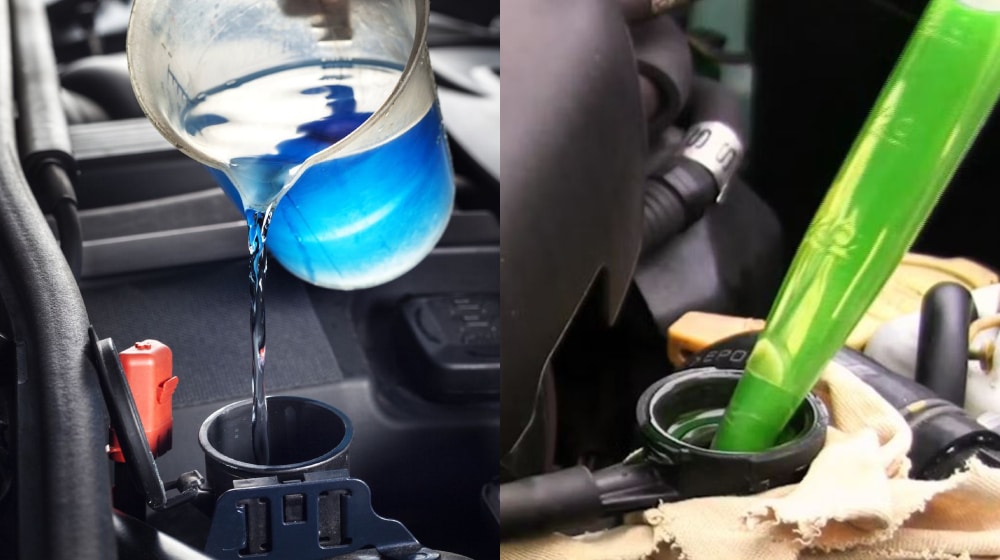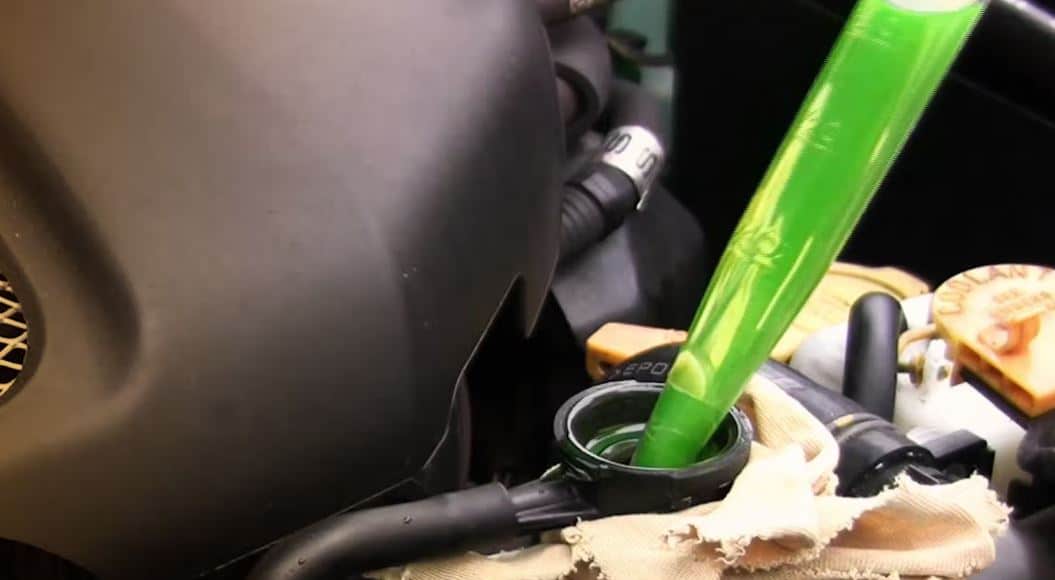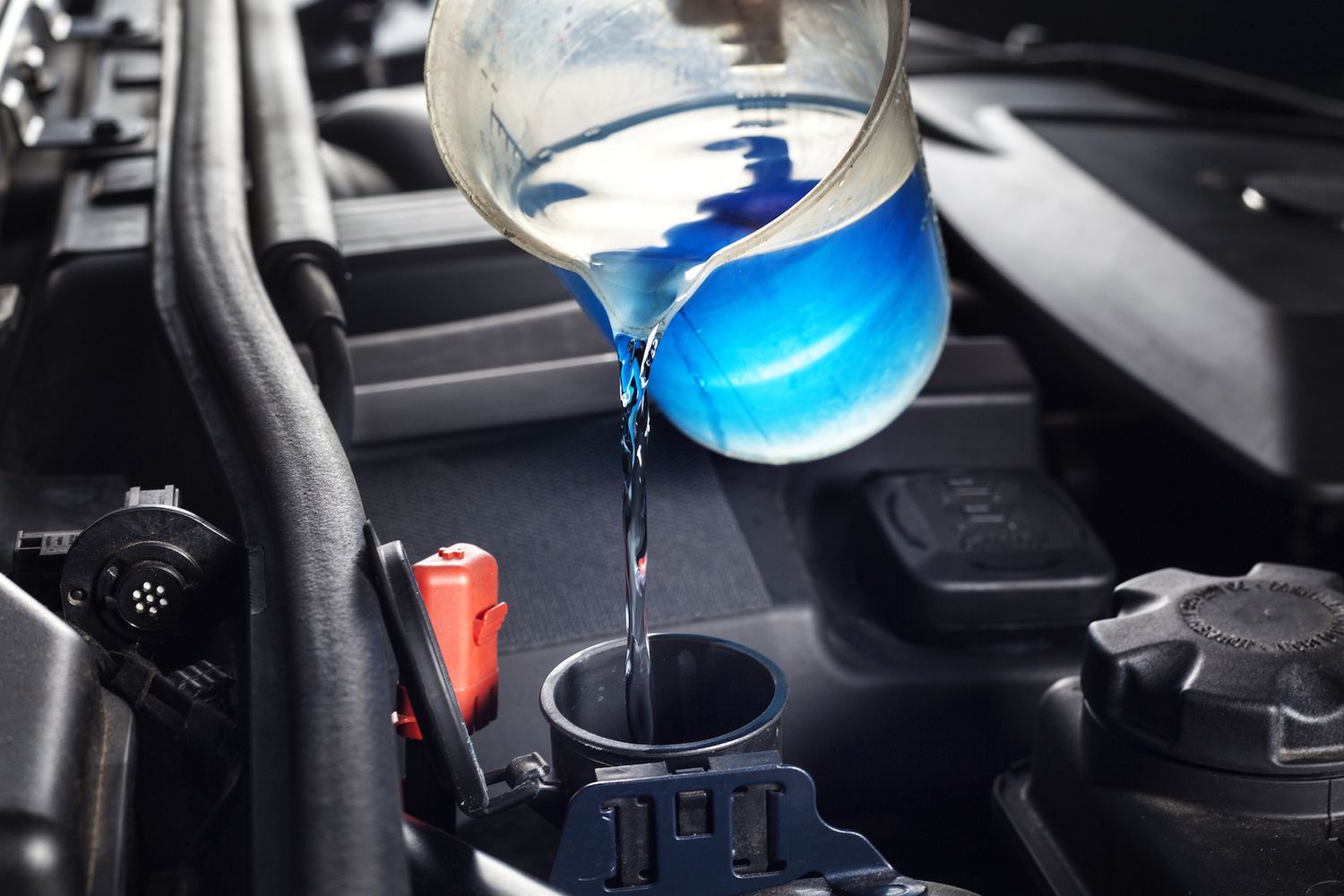As the scorching summer heat sets in, it’s important to keep your car’s engine cool and working well. But which is better for this: coolant or water?
Many people simply pour water into their car’s coolant reservoir and think that’s enough. However, it’s essential to understand the advantages and disadvantages of both coolant and water so that you can make the right choice for your car and have a trouble-free summer on the road.
Coolant — The Optimal Choice
Coolant is a special liquid made to control the temperature of your car’s engine, especially when the weather is really hot or really cold. There are two basic types of coolants that you should be aware of:
Pure Coolants
Pure coolants, also called “pre-mixed” or “ready-to-use” coolants, are concentrated liquids that you can use without adding water. Here’s what you need to know about them:
- Ready for Use — You can pour pure coolants directly into your car’s cooling system without having to mix them with water. It saves you time and effort.
- Correct Mixture — Pure coolants already have the right amount of water mixed in, so you don’t have to worry about getting the ratio right. It ensures that your engine stays cool and protected.
- Special Ingredients — These pure coolants are made with a specific blend of water, ethylene or propylene glycol, and other substances that help cool your engine effectively. They also protect against corrosion and have a high boiling point to handle extreme temperatures.
Coolants Requiring Water Mixture
Some coolants need to be mixed with water before you put them in your car’s cooling system. Here’s what you should know about them:
- Concentrated Solution — These coolants are strong and need to be diluted with water before use. Usually, you mix them with an equal amount of coolant and water, a 50-50 ratio. But make sure to follow the instructions from the manufacturer.
- Customizable Ratio —The good thing about coolants that need water is that you can adjust the ratio depending on where you live and the weather. In colder places, you might need more coolant and less water to protect your engine, and vice-versa for hotter regions.
- Versatility — Coolants that require water can be used in different vehicles and engines. They give you the flexibility to customize the mixture according to your needs. Plus, they’re often cheaper than pre-mixed coolants.
- Mixing is Important —When you mix the coolant with water, it’s important to follow the instructions. Getting the right ratio that ensures that your engine stays cool and gets the protection it needs. So, pay attention and be accurate when mixing them.
Why Use Coolants?
Here’s why coolant is the best choice for your car during the summer for these reasons:
- Heat Dissipation — Coolants have a special mix of water and ethylene or propylene glycol, which helps them dissipate heat better than water alone. They are designed to handle high temperatures and prevent your engine from overheating.
- Boiling Point Protection — On hot summer days, your engine can get really hot. Coolant raises the boiling point of the liquid in your car’s cooling system, making it less likely to boil and evaporate. This extra protection helps prevent overheating.
- Corrosion Prevention — Coolants contain special additives that shield your engine from corrosion, rust, and mineral buildup. These additives keep your cooling system in good shape and make sure everything works efficiently for a long time.
Water: A Temporary Solution
In emergency situations where you don’t have access to coolant, water can be used temporarily. However, there are important things to keep in mind:
- Limited Cooling Capacity — Water can help dissipate some heat, but it has a lower boiling point than coolant. This means that under high engine temperatures, water can boil and evaporate quickly, which puts your car at risk of overheating.
- Corrosion and Scaling — Unlike coolant, water doesn’t have the necessary additives to prevent corrosion and scaling in the cooling system. Using water continuously can lead to the buildup of mineral deposits and rust, potentially causing blockages and damage to the engine.
- Freezing in Winter – If you live in a cold region, water in the cooling system can freeze when the temperature drops, causing it to expand. This expansion can potentially damage the engine block, radiator, and other components. Coolant, on the other hand, has antifreeze properties that protect against freezing in colder climates.
Remember, while water can serve as a temporary solution, it’s important to prioritize using coolant for long-term engine health and protection. Always make sure to have the proper coolant for your car and consult your vehicle’s manual or a qualified professional for guidance.
Conclusion
Using water may seem convenient in the summer, but it’s important to prioritize your car engine’s long-term health. Coolant is the better choice because it offers superior heat dissipation, protection against boiling, and corrosion. This ensures that your car performs well and lasts longer.
While water can work temporarily, it lacks the necessary properties to protect your engine from overheating and potential damage. That’s why it’s strongly recommended to use coolant during the summer for reliable and efficient cooling.
Remember to regularly maintain and inspect your car’s cooling system. Check coolant levels and quality to ensure your engine runs smoothly all year round. Stay cool and enjoy your summer drives!


























